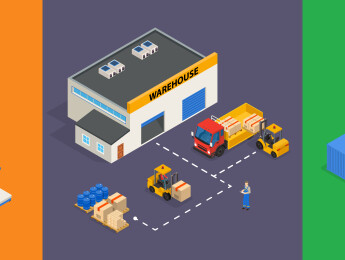Sales and Operation Planning (S&OP) is an integrated process for balancing supply and demand. It aligns multiple operational areas of an organisation to meet financial and organisational goals. In addition to supporting cross-functional activities, S&OP is a key communication tool that presents a unified plan to executive-level management.
This course provides insight and strategies into S&OP by examining the key components of demand, inventory, and supply. You will also understand risk factors and incorporate risk management into your S&OP process.
Upon completion of this course, participants will be able to:
- Develop an understanding of the role of S&OP in business planning.
- Describe the core areas of S&OP: managing demand, inventory, and supply.
- Summarise the process and benefits of balancing supply and demand.
- Identify your organisation’s S&OP maturity level.
- Cultivate the skills and knowledge to create an integrated S&OP plan.
This course is intended for:
- Professionals involved in the S&OP process
- Senior and Mid-level managers
- Supply Chain professionals
This course uses a variety of adult learning styles to aid full understanding and comprehension. Participants will review case studies to highlight key areas of importance and possible areas for faults. They will be supplied with the best tools required for learning exercises to improve their skills. Participants will analyse the examples to thoroughly understand how these skills, techniques and methods apply in the workplace.
Day 5 of each course is reserved for a Q&A session, which may occur off-site. For 10-day courses, this also applies to day 10
Section 1: Overview of Sales & Operation Planning (S&OP)
- Examine the development of Enterprise Resource Planning (ERP) and the role of S&OP.
- Outline the S&OP process.
- Describe the components of end-to-end supply chains.
- Discuss technologies to support S&OP.
- Define core S&OP terminology.
Section 2: Managing Demand
- Describe the attributes and behaviour of demand.
- Discuss the importance of forecasting.
- Outline forecasting management.
- Identify forecasting techniques.
- Examine ways to use forecast data.
- Practise calculating and analysing demand forecasts.
Section 3: Managing Inventory
- Discuss the purpose of inventory
- Identify inventory types and functions.
- Analyse the financial implications of inventory.
- Examine methods for setting inventory levels.
- Describe processes for reordering.
- Practise managing inventory levels.
Section 4: Managing Supply
- Examine the factors behind strategic supply decisions.
- Describe time fences.
- Discuss strategies to manage time fences.
- Explore the relationship between supply and S&OP.
- Identify capacity issues and their impact on supply.
- Outline the role of scheduling in supply management.
- Practise creating a balanced supply plan.
Section 5: Assembling an integrated S&OP process
- Describe the process of managing risk.
- Identify potential and realised risks.
- Categorise types of risk.
- Discuss risk reduction strategies.
- Practise developing a risk management plan.
- Outline an integrated S&OP plan.
Upon successful completion of this training course, delegates will be awarded a Holistique Training Certificate of Completion. For those who attend and complete the online training course, a Holistique Training e-Certificate will be provided.
Holistique Training Certificates are accredited by the British Assessment Council (BAC) and The CPD Certification Service (CPD), and are certified under ISO 9001, ISO 21001, and ISO 29993 standards.
CPD credits for this course are granted by our Certificates and will be reflected on the Holistique Training Certificate of Completion. In accordance with the standards of The CPD Certification Service, one CPD credit is awarded per hour of course attendance. A maximum of 50 CPD credits can be claimed for any single course we currently offer.
- Course Code PM1-108
- Course Format Classroom, Online,
- Duration 5 days













